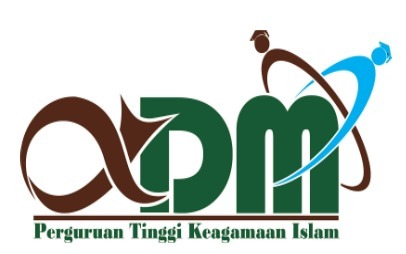Students’ Responses in Online Learning During the Covid-19 Pandemic Towards Mathematics Learning Outcomes of Students
DOI:
https://doi.org/10.21580/square.2022.4.2.12522Abstract
The purpose of this study was to determine the effect of student responses in online learning during the Covid-19 pandemic on the mathematics learning outcomes of grade IX students at the junior high school level and the equivalent in Baubau City. This research is an ex-post facto research, which was conducted in junior high school and equivalent in Baubau City. The population is all students of class IX SMP and equivalent in Baubau City (that is, SMP and MTs both public and private) as many by as 3170 students. The research sample was taken as many as 314 students. The instruments used are questionnaires and tests of students' mathematics learning outcomes. The results of the analysis on the regression test with a significant value of 0.024 > 0.025 and a t-value of 2.266 state that there is an effect of student responses in online learning on the mathematics learning outcomes of grade IX junior high school students and the equivalent in Baubau City.
Keywords: student response, online learning, the covid-19 pandemic, mathematics learning outcomes
Downloads
References
Andriani, D., Prasetyo, K. H., & Astutiningtyas, E. L. (2021). Respon Siswa Terhadap Pembelajaran Dalam Jaringan (Daring) Pada Mata Pelajaran Matematika. Absis: Mathematics Education Journal, 2(1).
Azis, A., & Dewangga, J. (2020). Efektivitas Model Pembelajaran Explicit Intruction dan Reward and Punishment ditinjau dari Hasil Belajar Matematika Siswa. Jurnal Akademik Pendidikan Matematika, 6(1), 1–9.
Azwar, S. (2010). Metode Penelitian. Pustaka Pelajar.
Azwar, S. (2012). Reliabilitas dan validitas edisi 4. Yogyakarta: Pustaka Pelajar.
Baharuddin, B. (2009). Psikologi Pendidikan. Ar Ruzz Media.
Darmansyah, D. (2012). Bahan Ajar Strategi Pembelajaran.
Ebel, R.L., & Frisbie, D. A. (1986). Essential of Education Measurement. Prentice Hall Inc.
Erviana, L. (2016). Effect of students’ learning interests, attitudes, and perception about teacher’s teaching technique toward math learning outcomes in class VIII SMP Negeri in the District Bulukumba. Journal of Mathematics Education, 1(2).
Fathurrohman, M., & Chotimah, C. (2018). Paradigma Baru Sistem Pembelajaran: Dari Teori, Metode, Model, Media, Hingga Evaluasi Pembelajaran (F. YM (ed.); 1st ed.).
Hadi, L. (2020). Persepsi Mahasiswa Terhadap Pembelajaran Daring Di Masa Pandemik Covid-19 Student Perceptions of Online Learning During Covid-19 Pandemic. Jurnal Zarah, 8(2).
Hamzah B. Uno. (2011). Model Pembelajaran Menciptakan Proses Belajar Mengajar Yang Kreatif Dan Efektif (Fatna Yustianti (ed.); 1st ed.). Bumi Aksara.
Kusuma, F. W., & Aisyah, M. N. (2012). Implementasi Model Pembelajaran Kooperatif Tipe Think Pair Share Untuk Meningkatkan Aktivitas Belajar Akuntansi Siswa Kelas Xi Ips 1 Sma Negeri 2 Wonosari Tahun Ajaran 2011/2012. Jurnal Pendidikan Akuntansi Indonesia, 10(2), 43–63.
Mary J. Allen, & Yen, W. M. (1979). Introduction to Measurement. In Brooks/Cole Publishing Company. Brooks/Cole Publishing Company.
Propham, W. J. (1995). Classromm Asesment: What Teachers Need to Know. Allyn & Bacon.
Rahmawaty, U. F. R. (2020). Pendidikan di Masa Covid-19 Pengantar (U. F. R. Rahmawaty (ed.); p. 16). Institute of Social Economic and Digital (ISED).
Rusydi Ananda, M. F. (2018). Statistik Pendidikan Teori dan Praktik Dalam Pendidikan (S. Saleh (ed.)). CV. Widya Puspita.
Siahaan, M. (2020). Dampak Pandemi Covid-19 Terhadap Dunia Pendidikan. Jurnal Kajian Ilmiah, 1(1), 73–80.
Slameto, S. (2010). Belajar & Faktor-Faktor yanga Mempengaruhinya (Jakarta). PT. Rineka Cipta.
Soemanto, W. (2006). Psikologi Pendidikan. Rineka Cipta.
Sufren, N. Y. (2013). Mahir Menggunakan SPSS Secara Otodidak. Kompas Gramedia.
Sugiyono. (2014). Metode Penelitian Pendidikan Pendekatan Kuantitatif, Kualitatif, dan R&D. In Metode Penelitian Pendidikan Pendekatan Kuantitatif, Kualitatif Dan R&D. Alfabeta.
Sulistyorini, M., & Fathurrohman. (2012). Buku & Pembelajaran Meningkatkan Mutu Pembelajaran Sesuai Standar Nasional (M. F. & Sulistyorini (ed.); 1st ed.). Teras.
Suryabrata, S. (2002). Psikologi Pendidikan. Raja Grafindi Persada.
Yatimah, D. (2017). Landasan Pendidikan (Karniadi (ed.); 1st ed.). CV. Alumgadan Mandiri.
Downloads
Published
Issue
Section
License
The Authors submitting a manuscript do so on the understanding that if accepted for publication, copyright of the article shall be assigned to Square: Journal of Mathematics and Mathematics Education as the publisher of the journal. The copyright form should be signed originally and send to the Editorial Office in the form of original mail, scanned document to [email protected]
Square : Journal of Mathematics and Mathematics Education by Mathematics Department UIN Walisongo Semarang is licensed under a Creative Commons Attribution-ShareAlike 4.0 International License.




























